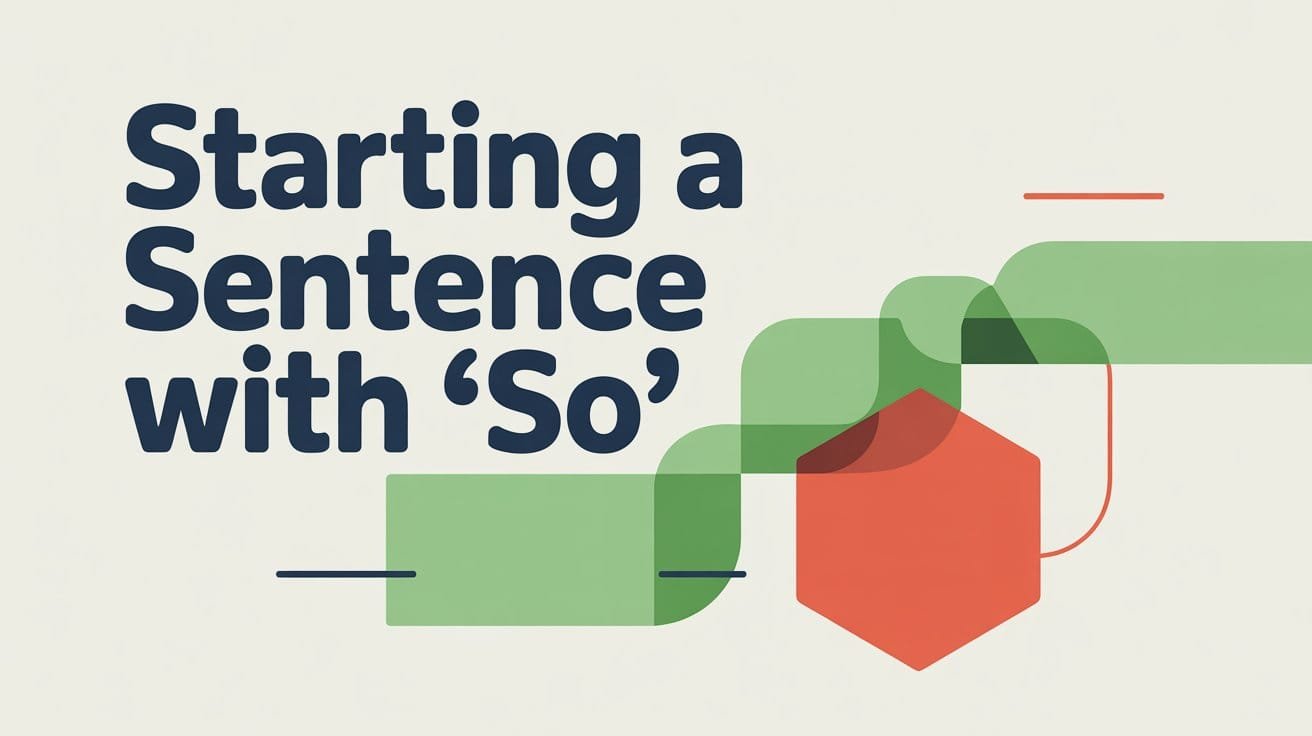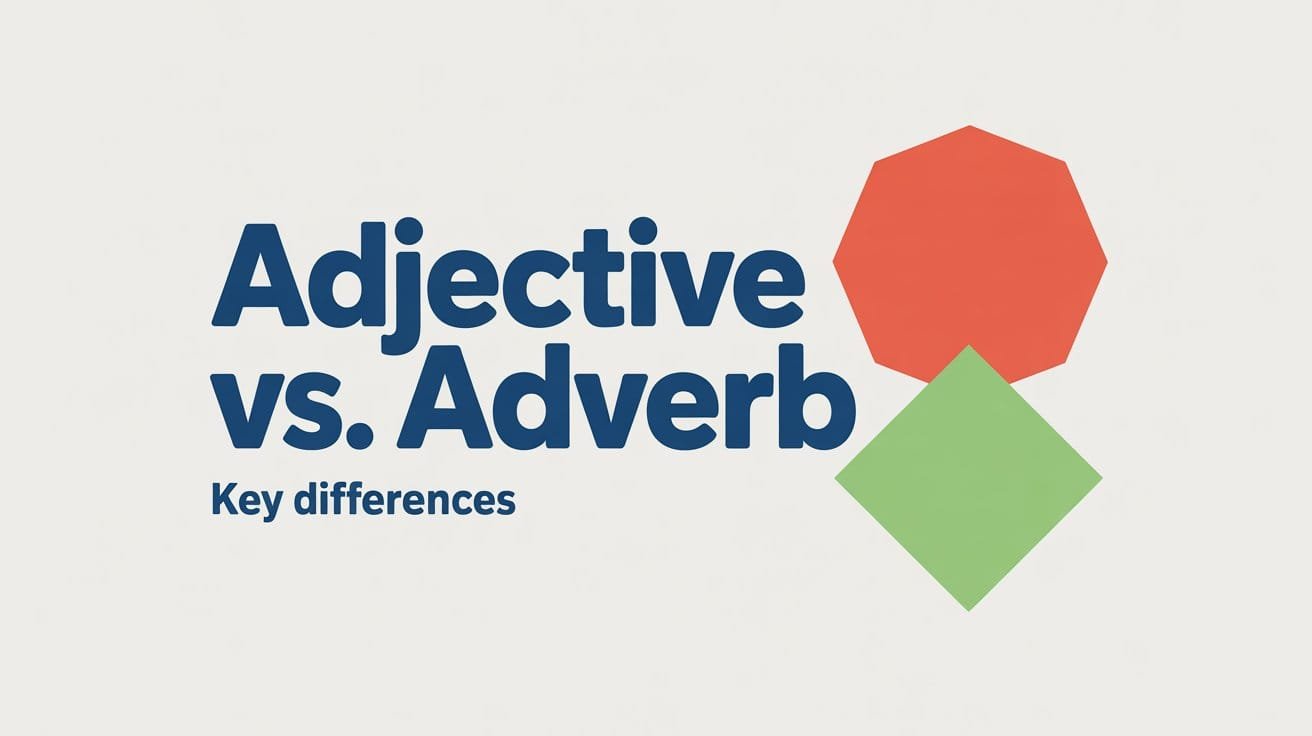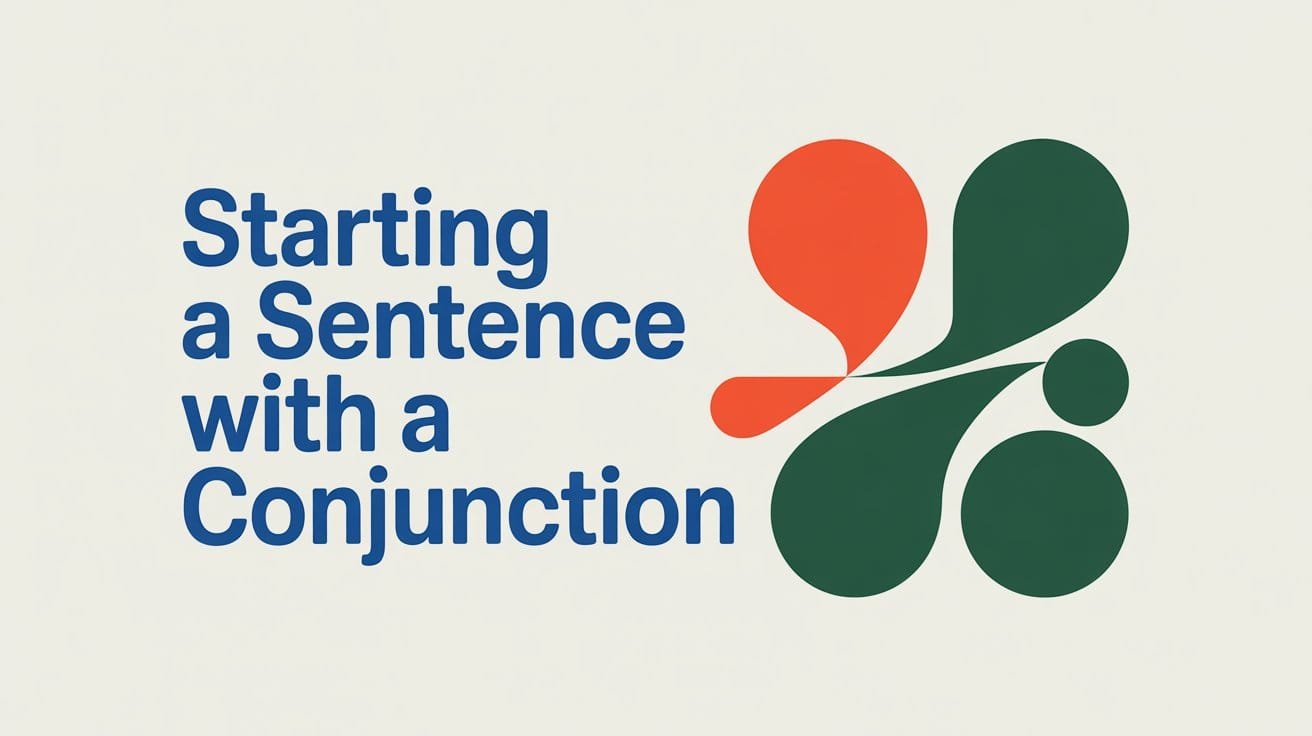You’ve likely seen sentences that begin with so in conversations, articles, or even interviews. But is it grammatically correct?
Yes, it is. When used properly, so can start a sentence to show the cause, result, or continuation of thought. Although it’s often considered informal, starting with so is acceptable in many types of writing. The key is understanding the purpose it serves and making sure the sentence that follows is complete and clear.
Is It Correct to Start a Sentence with So?
Yes, starting a sentence with so is grammatically acceptable. Writers and speakers often use so to:
- show a result (So they canceled the event.)
- continue a story or explanation (So I told him the truth.)
- transition smoothly from one idea to the next
In formal writing, so is used less often at the beginning of a sentence, but it’s still valid—especially when the sentence is complete and logically follows from the previous idea.
Examples of Sentences Starting with So
- The weather forecast wasn’t promising. So they moved the party indoors.
- She didn’t receive the update. So she missed the deadline.
- He had experience in a similar role. So they hired him right away.
- I wasn’t sure what to say. So I stayed quiet.
Each of these examples uses so to indicate a result or logical outcome of the previous sentence.
When to Avoid Starting a Sentence with So
Even though it’s acceptable, there are cases where starting with so isn’t the best choice. Make sure the sentence after so includes a subject and verb.
When the Sentence Is Incomplete
Make sure the sentence after so includes a subject and verb.
❌ So didn’t return the call.
✅ So he didn’t return the call.
When It’s Used as a Filler
Some people begin sentences with so even when it doesn’t add meaning. This can weaken your writing or make it feel vague. If so doesn’t contribute to the sentence’s meaning, consider removing it.
❌ So, I was just thinking…
✅ I was thinking about a better way to solve the problem.
In Formal Writing (Use With Care)
In formal or academic writing, starting with so may sound too casual. Choose an alternative like thus, therefore, or as a result when the tone needs to be more formal.
❌ So the data was collected from multiple sources.
✅ Therefore, the data was collected from multiple sources.
How to Use So at the Beginning of a Sentence
- Use it to show a cause-and-effect relationship
- Make sure the sentence is complete and clear
- Avoid filler usage that doesn’t add meaning
- Choose alternatives in formal writing when needed
Related Reading
- Can You Start a Sentence with And?
- Can You Start a Sentence with But?
- Can You Start a Sentence with Although?
Final Thoughts
Yes, you can start a sentence with so—as long as it’s done with purpose. It’s a useful way to show results, continue ideas, or lead to a new thought. Just make sure the sentence is complete and avoid using so as a filler, especially in formal writing. When used thoughtfully, so can be a helpful part of clear and natural expression.



